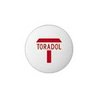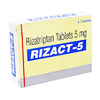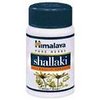INDICATIONS
Toradol is indicated for the short-term ( ≤ 5 days) management of moderately severe acute pain that requires analgesia at the opioid level, usually in a postoperative setting. It is used alone or in combination with other medicines. This medication is not for treating minor aches and pains.
Toradol is in a group of drugs called nonsteroidal anti-inflammatory drugs (NSAIDs). It works by reducing hormones that cause inflammation and pain in the body.
INSTRUCTIONS
Take Toradol exactly as it was prescribed for you.
- Do not take the medication in larger amounts, or take it for longer than recommended by your doctor.
- The tablet should be taken with a full glass of water.
- Toradol is normally given for 5 days or less.
- Long-term use of Toradol can damage your kidneys or cause bleeding.
- If you need to have any type of surgery, tell the surgeon ahead of time if you have recently used this medication.
- If you miss a dose of Toradol and you are using it regularly, use it as soon as possible. If it is almost time for the next dose, skip the missed dose and go back to your regular dosing schedule. Do not use 2 doses at once.
Ask your health care provider any questions you may have about how to use Toradol.
STORAGE
Store Toradol at room temperature away from moisture and heat. Keep Toradol out of the reach of children.
MORE INFO:
Active Ingredient: Ketorolac tromethamine.







